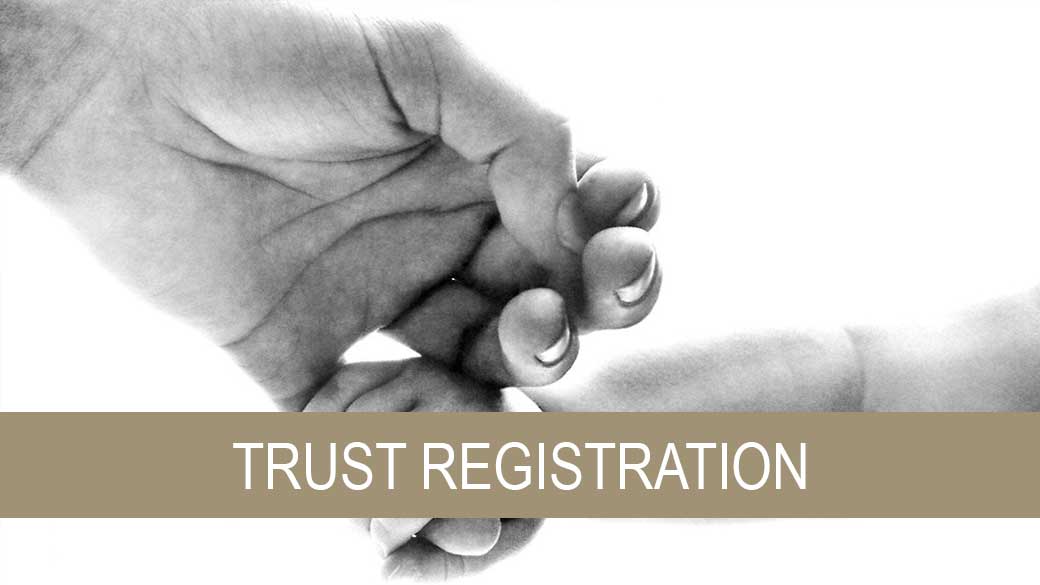TRUST REGISTRATION
Trusts are set up for social causes and include activities such as relief of the poor, education, medical relief, preserving monuments, and advancement of any other object of general public utility as charitable purposes.
PRIVATE TRUSTS
A private trust is created and governed by the Indian trusts Act of 1882.A Trust is an obligation annexed to the ownership of the property, and arising out of a confidence reposed in and accepted by the owner, or declared and accepted by him, for the benefit of another, or another and the owner. A trust can be created by any person who is competent to contract under Indian Contracts Act.
In trusts, the property is actually transferred to the trustee for the benefit of some other person, and it cannot be used by the trustee for his own personal benefit. Any person who under the law is capable of holding property can be a trustee.
One of the main advantages of forming a trust is that it has a simple process of registration with simple regulations.
PROCEDURE TO CREATE A PRIVATE TRUST
- Deciding the name of the trust
- Proper address of the trust
- The object of the trust (it is good to lay down long-term objectives so that changes can be accommodated easily afterwards).
- One settler
- At least 2 trustees (trustees decided must be skillful enough to handle the prescribed tasks of the trust, even the settler can himself be the trustee to exercise greater control over the property).
- Beneficiaries (clearly identify who can be the beneficiaries to avoid hustle later).
- Property of the trust whether moveable or immoveable (Practically, what is usually done is that only a small amount of property is shown as the trust property to save the registration fee or stamp duty).
After all the above requisites are met, a trust deed is prepared on the stamp paper of requisite value (8% of the value of property is requisite stamp duty in Delhi. However, it varies from state to state). After this, Trust Deed is registered with the Local Registrar under the Indian Trusts Act, 1882 with the following requirements to be fulfilled:-
TRUST DEED
It is an essential instrument of trust wherein the aims and objectives and modes of management have to be described and mentioned. A trust deed is a must when there is a property involved, especially in terms of land and building so as to provide a prima facie evidence of the existence of the trust. In all the trust deeds the maximum and minimum number of trustees should be mentioned.
REGISTRATION OF TRUST DEED
The trust deed should be executed on non-judicial stamp paper, the value of which would depend on the valuation of trust property. In the region, in which the trust is sought to be registered, it is required that the application of registration should be made to the concerned sub registrar.
For registration of trust deed the settlor or trustees and at least two witnesses must be physically present at the Registrar’s office along with their photographs and identity proofs. Settlers or the trustees need to sign the deed after their mutual consent in the presence of two witnesses.






